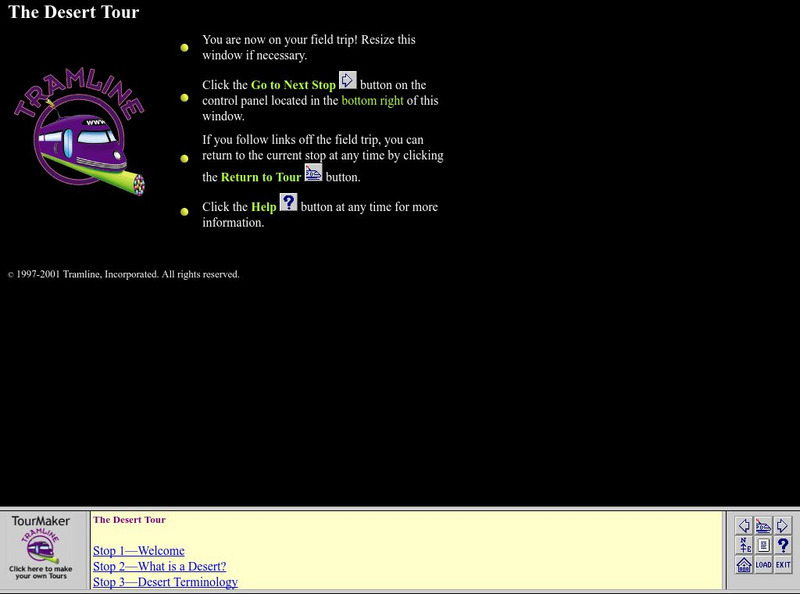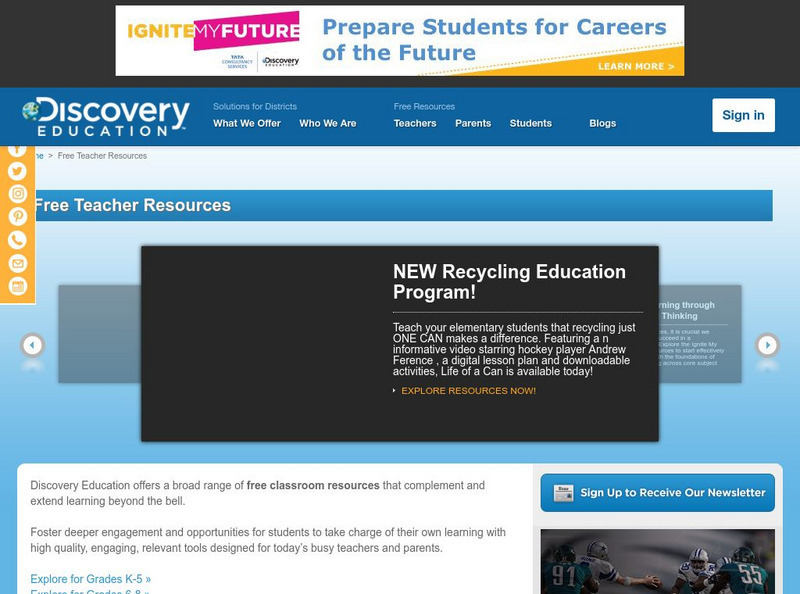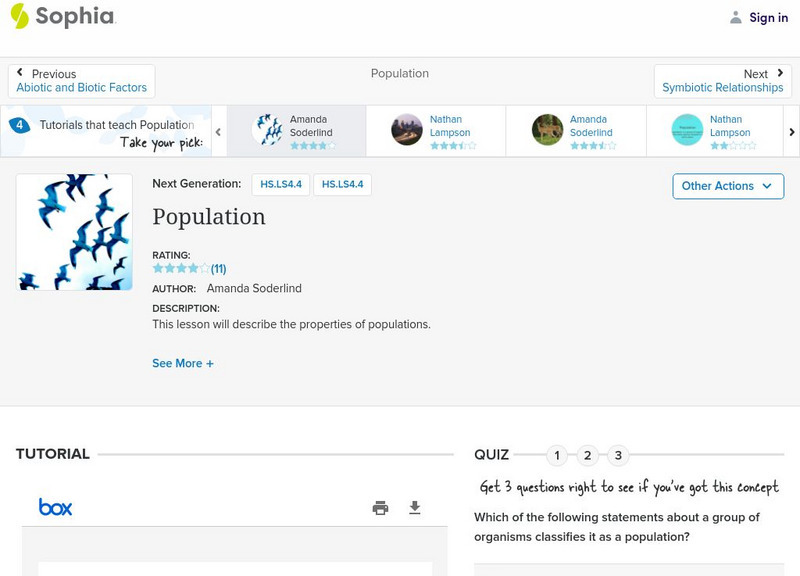E-learning for Kids
E Learning for Kids: Nova Zembla: How Does Temperature Affect Plant Growth?
Viktor brought his pet plant on his trip to Nova Zembla. Help him figure out what to do to take care of the plant.
CK-12 Foundation
Ck 12: Earth Science: Modern Biodiversity
[Free Registration/Login may be required to access all resource tools.] How diverse Earth's organisms are today.
Alabama Learning Exchange
Alex: Envision, Enhance, Enjoy
In this lesson from "The Friends of Auntie Litter", (www.auntielitter.org), habitats will be explored. Students will also create bird houses. This lesson is one from the "Take Pride Statewide" series. *This lesson is provided by Lana...
ArtsNow
Arts Now Learning: Exploring Habitats Through Music Composition [Pdf]
In this lesson, young scholars will learn about rondo form and practice a chant. After learning about the structure of the chant, they will work in small groups to create a chant about a habitat. The chants will then be combined with the...
Tramline
Desert Field Trip
Use this site to find out how deserts are formed, where the largest desert is located and if there are different types of deserts.
Other
Combat Fishing: Ecology of Lakes and Ponds
This site from combat fishing describes the ecology of lakes and ponds for anglers and other fish. It is a very in-depth site with a lot of text, but presented in and easy-to-understand format. The information is very factual and...
Discovery Education
Discovery Education: Make It a Habitat
This lesson plan explores the adaptation of life forms through natural selection to fill various niches and accommodate changing environmental conditions.
Other
Explore Learning: Effect of Environment on New Life Form
Using the scientific method, control the environmental conditions for a fictional alien organism in order to learn how the organism responds to changes in conditions. Sunlight, water, and temperature can be varied to determine their...
Australian Broadcasting Corporation
Australian Broadcasting Corporation: News in Science: Antarctic Reveals Treasure Trove of Life
From ABC News in Science, Maggie Fox's article examines research connected to the various species of life discovered in the "dark waters around Antarctica." These findings include sponges, crustaceans, and new worms.
Other
Passport to Knowledge: Passport to the Rain Forest
Follow in Darwin's footsteps to the heart of our planet's largest rainforest, guided by some of the world's leading biologists. Content uses pictures, video, real-time interactions, and activities, to fully explore the rain forest from...
US Fish and Wildlife Service
Fish and Wildlife Service: Biologist in Training [Pdf]
Guide for kids and tips for parents on how to explore a wildlife habitat and connect with nature.
Channel 4 Learning
Channel 4 Learning: Science Essentials: Habitats
Find answers to your questions about habitats, producers, consumers, and food chains. Glossary, image bank, suggested activities, and quiz included.
Sophia Learning
Sophia: Population: Lesson 2
This lesson will describe the properties of populations. It is 2 of 8 in the series titled "Population."
Sophia Learning
Sophia: Population: Lesson 3
This lesson will describe the properties of populations. It is 3 of 8 in the series titled "Population."
Sophia Learning
Sophia: Population: Lesson 4
This lesson will describe the properties of populations. It is 4 of 8 in the series titled "Population."
ClassFlow
Class Flow: Where Do They Live?
[Free Registration/Login Required] This flipchart contains an introduction page through which teachers can discuss what all living things need. On subsequent pages students will decide which animal does not belong in the habitat shown.
ClassFlow
Class Flow: Changes in Habitats
[Free Registration/Login Required] A 2nd grade unit on how people and weather can change habitats. Topics include too much and too litter rain (flooding and drought), lightning and fire, and land, water, and air pollution. This flipchart...
ClassFlow
Class Flow: Habitats
[Free Registration/Login Required] Through this unit, children will begin to understand the concept of a habitat, how it provides organisms found there with conditions for life and how animals depend on plants or other animals which eat...
HotChalk
Hot Chalk: Lesson Plans Page: Majestic Peaks
In this lesson, students research plant and animal life on mountains, as well as different weather regions. They then work in groups to present their information to the class.
Education Scotland
Learning and Teaching Scotland: Illustrations of Places
An assortment of clip art featuring scenes of natural habitats, homes, and other places. Scroll down to find the topic of your choice.
ClassFlow
Class Flow: Plant and Animal Habitats
[Free Registration/Login Required] This lesson explains plant and animal habitats with brilliant pictures and photos. It also includes discussion and non-Activote questions.
Alabama Learning Exchange
Alex: Beanie Baby Habitats Collaborative Project
With the booming market of "Beanie Baby" type stuffed animals being so prominent in students' lives, this project brings that interest into the classroom through the use of research, science, hands-on experiences, and technology. The...
Curated OER
Untamed Science: Forest Succession
A diagram illustrating the ecological succession of a forest.
Curated OER
Unesco: Mongolia: Uvs Nuur Basin
The Uvs Nuur Basin (1,068,853 ha), is the northernmost of the enclosed basins of Central Asia. It takes its name from Uvs Nuur Lake, a large, shallow and very saline lake, important for migrating birds, waterfowl and seabirds. The site...





![Arts Now Learning: Exploring Habitats Through Music Composition [Pdf] Lesson Plan Arts Now Learning: Exploring Habitats Through Music Composition [Pdf] Lesson Plan](https://d15y2dacu3jp90.cloudfront.net/images/attachment_defaults/resource/large/FPO-knovation.png)













